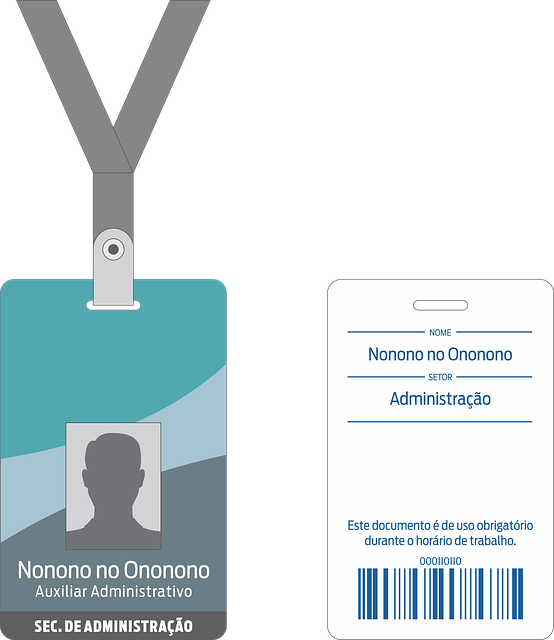When purchasing a used vehicle, it's imperative to ensure the car's history is accurate. Trust in the transaction relies on the information provided by the VIN, which can be authenticated against public records using services like Vehicle Ownership Validation or Car Title Check. These tools reveal critical data such as maintenance records, repair history, and title changes, helping buyers confirm the vehicle's actual history aligns with what the seller claims. A survey by Consumer Reports shows that a significant number of buyers have encountered discrepancies, highlighting the importance of VIN verification to avoid fraud and deception. By using these services, buyers can make informed decisions, minimize potential post-sale complications, and ensure the vehicle's integrity. It's crucial for car buyers to conduct comprehensive checks to verify a car's authentic history, ensuring it matches official records, thus safeguarding against deceptive practices and preserving trust in second-hand vehicle transactions.
When considering a vehicle purchase, trust is paramount. A VIN (Vehicle Identification Number) authenticity verification emerges as a critical safeguard against misplaced trust, particularly in the automotive sector. This article delves into the robust measures available to buyers, such as Vehicle Ownership Validation and Car Title Checks, which offer reassurance by verifying a car’s authenticity prior to purchase. A recent Consumer Reports survey underscores the necessity of these checks, revealing that a shocking 18% of buyers encountered inconsistencies between the seller’s claims and the vehicle’s actual history. Armed with knowledge of VIN tracking systems, consumers can sidestep common pitfalls, ensuring they invest in a genuine car. We will explore the intricacies of these systems, the prevalence of car history discrepancies, and the benefits of thorough pre-purchase evaluations, including Car Title Checks. By understanding how to authenticate a vehicle’s identity and its history, buyers can make informed decisions, avoiding fraud and securing their confidence in every purchase.
- VIN Authentication: The Key to Car Purchase Confidence
- The Reality of Car History Discrepancies: Survey Insights
- Understanding Vehicle Ownership Validation Processes
- Benefits of a Car Title Check in Pre-Purchase Evaluation
- Avoiding Fraud: How VIN Tracking Systems Protect Buyers
- Ensuring Clarity: The Importance of Accurate Vehicle Histories
VIN Authentication: The Key to Car Purchase Confidence

When considering the purchase of a vehicle, trust is paramount. A potential buyer must be confident that the car they are evaluating aligns with its advertised history and condition. This is where VIN authentication emerges as a critical step in the car-buying process. The Vehicle Identification Number, or VIN, is a unique code assigned to every vehicle upon manufacture. It acts as a digital fingerprint, encapsulating vital information about the car’s make, model, year, and manufacturing specifics, as well as its history of maintenance, repairs, and title changes. By leveraging VIN authentication services like Vehicle Ownership Validation or Car Title Check, buyers can cross-reference this data against public records to ensure the vehicle’s history matches the seller’s claims. These tools provide a transparent and reliable means to verify the authenticity of the car’s documentation, thereby safeguarding the buyer from potential fraud and deception. Nearly 20% of used car buyers have encountered discrepancies in the vehicle’s reported history versus its actual history, as highlighted by a survey conducted by Consumer Reports. This underscores the importance of using VIN authentication to make an informed decision. By utilizing these services, car buyers can proceed with greater confidence, knowing they have taken proactive measures to verify the integrity of their potential purchase and reduce the risk of unforeseen complications post-sale.
The Reality of Car History Discrepancies: Survey Insights

A recent survey by Consumer Reports unveiled a significant concern in the automotive market, where roughly 18% of buyers discovered inconsistencies between what sellers claimed and the actual history of the car. This revelation underscores the importance of due diligence when purchasing a vehicle. The discrepancies ranged from minor to major issues, such as odometer tampering, title wash schemes, or undisclosed accident histories. These findings highlight a stark reality: buyers cannot solely trust verbal assurances or paperwork provided by sellers. The need for an objective verification process is evident, as it can protect consumers from falling victim to fraudulent practices and ensure the vehicle’s history aligns with legal documentation. Utilizing a VIN tracking system offers a reliable method to authenticate the car’s details, including its past, ownership history, and any incidents that may affect its value or safety. Such verification is indispensable for maintaining trust in vehicle transactions and for safeguarding the interests of the buyer.
Understanding Vehicle Ownership Validation Processes

When purchasing a vehicle, understanding its ownership history is paramount to ensuring that the transaction is legitimate and the vehicle is free of any legal encumbrances. Vehicle Ownership Validation processes are critical in this regard. These processes involve checking the authenticity of a vehicle’s title and verifying the chain of ownership through historical records associated with the vehicle identification number (VIN). The VIN serves as a unique identifier for every car, truck, or motorcycle, linking it to its past owners, service records, accident history, and more. By using this 17-character code, potential buyers can access a comprehensive report detailing the vehicle’s status, including lien information, title brandings, odometer readings, and more. This level of scrutiny is essential for safeguarding against fraudulent activities such as title washing, where a car’s title is illegally cleaned to hide its problematic history.
A robust VIN tracking system can provide real-time access to these ownership validation processes. It cross-references the VIN with databases that hold records of past transactions and owner information. This system not only helps in detecting fraudulent sellers but also alerts buyers to potential issues with the vehicle, such as outstanding loans or financial liens that could complicate ownership transfer. By leveraging this technology, car buyers can approach purchases with greater confidence, knowing they have taken steps to verify the car’s history and ensure that their trust in the seller is well-placed. This due diligence is not just a precaution; it is a cornerstone of a secure transaction in today’s market.
Benefits of a Car Title Check in Pre-Purchase Evaluation

When considering the purchase of a vehicle, conducting a thorough pre-purchase evaluation is paramount to ensure the reliability and authenticity of the car. A Car Title Check serves as an indispensable tool in this process, providing critical insights into the vehicle’s history and legal standing. This check verifies the ownership records associated with the vehicle identification number (VIN), confirming that the title is clear and there are no outstanding liens or financial encumbrances. It also ensures that the car has not been reported as stolen or involved in significant accidents that could affect its safety and performance. By revealing a comprehensive history of the car, including past owners, accident records, and service history, buyers can make informed decisions, mitigating the risks associated with buying a vehicle with a murky past. This due diligence not only fosters trust between buyer and seller but also safeguards the purchaser’s investment, ensuring that the car’s condition aligns with the seller’s representations. The benefits of incorporating a Car Title Check into the pre-purchase evaluation process are manifold: it saves time and resources by preventing potential issues post-purchase, provides peace of mind, and ultimately contributes to a more transparent and secure vehicle marketplace.
Avoiding Fraud: How VIN Tracking Systems Protect Buyers

When purchasing a vehicle, trust in the seller’s claims about its history and condition is paramount. Unfortunately, the prevalence of fraudulent activities in the car market means that buyers must approach transactions with caution. A VIN tracking system emerges as a critical tool in this context, offering a reliable method to verify the authenticity of a vehicle’s information. By inputting the Vehicle Identification Number (VIN) into a database, potential buyers can access a comprehensive report detailing the car’s history, including previous owners, accident records, mileage changes, and service histories. This level of verification not only helps in assessing the vehicle’s true worth but also protects against fraudulent practices such as odometer tampering, title washing, or selling a stolen vehicle. With nearly one in five buyers encountering inconsistencies between what is advertised and the actual history of the car, employing a VIN tracking system becomes an essential step in the car-buying process. It ensures that trust isn’t misplaced, and buyers can confidently proceed with their purchase, knowing they have taken every measure to confirm the car’s identity and condition.
Ensuring Clarity: The Importance of Accurate Vehicle Histories

When considering the purchase of a vehicle, clarity regarding its history is paramount. An accurate vehicle history provides potential buyers with a comprehensive account of the car’s past, including details such as previous owners, accident records, service and maintenance history, and mileage changes. This information is crucial for assessing the condition and value of the vehicle, ensuring that the investment made aligns with the true state of the automobile. The importance of this cannot be overstated; a car’s history can significantly impact its reliability, safety, and overall worth. A clean title, free from any encumbrances or titles issued by different countries due to importation, signifies a vehicle less likely to have hidden issues that could arise in the future.
The advent of technology has made it easier for buyers to verify the authenticity of a vehicle’s history through VIN (Vehicle Identification Number) checks. This system allows potential purchasers to cross-reference seller claims with official records, providing peace of mind that the car has not been reported as stolen, involved in major accidents, or subjected to flood damage, among other issues. Utilizing a VIN verification service is an essential step for anyone looking to avoid costly mistakes and ensure they are making a sound purchase decision. It underscores the importance of due diligence in the vehicle buying process, safeguarding buyers from potential fraud and ensuring that trust remains well-placed.
When considering the significant investment of purchasing a vehicle, trust is paramount. The article has underscored the importance of VIN authentication and other verification methods in safeguarding buyer confidence. With statistics from Consumer Reports highlighting the prevalence of discrepancies between sellers’ claims and actual vehicle histories, it’s clear that these tools are not just beneficial but essential for informed decision-making. By employing a Vehicle Ownership Validation or a Car Title Check, prospective buyers can navigate the car market with confidence, assured of the authenticity and legitimacy of their potential purchase. In conclusion, leveraging these verification systems is a prudent step towards ensuring that trust in a vehicle’s history is well-placed, thereby avoiding the pitfalls associated with fraudulent activities.



